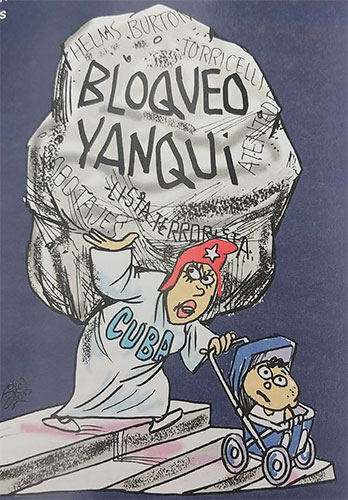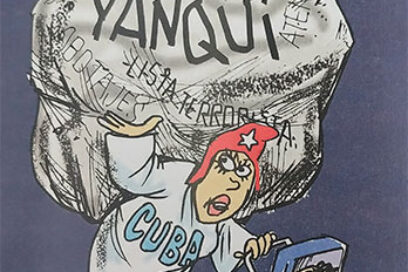
Cuba needs about 339 million dollars to guarantee the basic list of medicines, which is so deficient today. This amount corresponds to 25 days of blockade. All the insulin for diabetics (12 million dollars) could be guaranteed with 21 hours of blockade.
The lack of adequate maintenance of the national electrical system is the main cause of the blackouts we are currently suffering. In order to finance this expenditure, approximately 250 million dollars would be needed, which is equivalent to 18 days of blockade.
Young children need educational toys to develop their skills and knowledge. Daycare centers throughout Cuba could have a complete set of them with the $4.5 million lost in just eight hours of the blockade.
These examples were explained by the Minister of Foreign Affairs, Bruno Rodríguez Parrilla, during the update of the report that Cuba presents annually to the United Nations General Assembly, entitled «The need to end the economic, commercial and financial blockade imposed by the United States against Cuba».
The document becomes a tool to demand an end to Washington’s economic war against the Cuban nation and will be evaluated on October 29 and 30 in the plenary session of the United Nations General Assembly.
The consequences of the blockade are evident in the shortages that the population is experiencing in many facets of daily life, from electricity generation to access to food, medicine, transportation and the deterioration of other services, Rodríguez Parrilla explained.
In his plea, the Cuban diplomat claimed that the blockade is the most comprehensive, complete and prolonged system of unilateral coercive economic measures ever applied against any country. It constitutes a massive, flagrant and systematic violation of the human rights of the Cuban people; and the main obstacle to the country’s development.
The damage between March 2023 and February 2024 is estimated at $5.56.8 billion, or more than half a million dollars every half hour, while the cumulative damage over six decades is $164,141.1 billion.
What makes our economy unique in the context of the difficulties of all kinds that weigh on the countries of the South is the oppressive and suffocating presence of the U.S. blockade, he affirmed.
In the summer of 2019, the measures imposed by the Donald Trump administration under the pretext of alleged sonic attacks recently denied by US agencies and politicians themselves began to be implemented.
If anyone had any doubts about the genocidal nature of the blockade, they should have been dispelled during the COVID-19 pandemic, when the U.S. prevented Cuba from buying lung ventilators from U.S. manufacturers and their subsidiaries in Europe.
What is surprising is that this small country, with an underdeveloped economy, has been able to build an internationally recognized social work and protect its population in the last four years, in a context of global crisis and pandemic, he said.
The report shows the deliberate harm that the blockade is inflicting on the Cuban family, and there are other deadly financial consequences as a result of Cuba’s infamous inclusion on the list of countries that sponsor terrorism.
In May of this year, Cuba was removed from the list of countries not cooperating in the fight against terrorism. At the time, Secretary of State Antony Blinken said that circumstances had changed and that the pretext no longer existed. What then prevents the current president, Joe Biden, from signing a paper and removing Cuba from the list of countries that sponsor terrorism? Nothing, he could do it this afternoon. I urge him to do it, he stressed.
In May they announced some changes for the benefit of the private sector in Cuba, which have not become reality because the oppressive framework of the blockade prevents it, said the Foreign Minister. The U.S. authorities are lying when they say they want to help the Cuban people. If it were true, they would lift the blockade.


